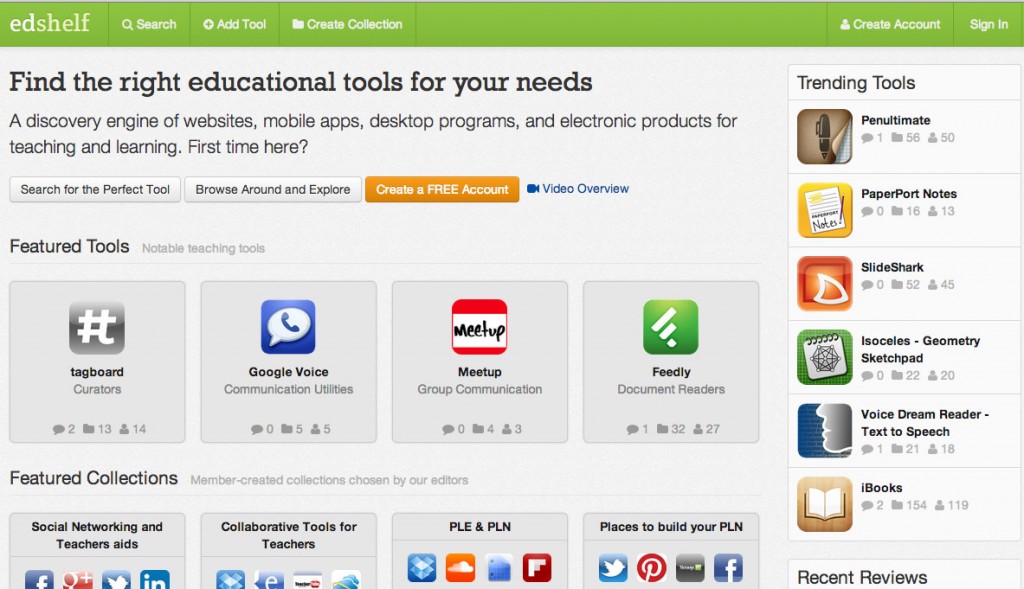
Despite a wave of social media calls to save the site, edshelf is set to close on July 25.
The story of edshelf, a site that aimed to organize and offer teacher reviews of apps and digital tools available to educators, is a valuable one for any tech firm eyeing the school market.
The startup was built with the best intentions – to fill the need of teachers and administrators trying to organize their own tech needs.
In numbers released just last month, 80 percent of teachers said that one of the challenges was finding the time to find tools that aligned to curriculum standards. This is what edshelf hoped to address.
So the need was there, but where edshelf struggled was in its business plans, says the site’s leader Mike Lee.
“The most important thing for an edtech company is to make sure you’re building a product that has a way to sustain itself,” Lee told EdSurge earlier this month. “In our case, we were building a platform business that took too much time to find a revenue model.”
By the end of June it had run out of options and announced on July 2 that it would close down later this month.
“[T]he costs of running our service have depleted the company’s and our personal savings,” Lee wrote. “We looked into everything we could to keep edshelf going, but unfortunately none of them worked out. We failed you, and we are truly sorry.”
In retrospect, Lee said that it was important that the site consider tools and features that could have been more clearly tied to revenue streams and not just the needs of teachers.
But a funny thing happened on the way to the Internet Archive. Twitter cooked up with teachers and administrators who did not want to lose the service that edshelf offered.
It started with an interesting post from someone who sells edtech and wanted to see edshelf live on because it helped him do his job. But his plea to save edshelf was mixed with a frustration about the edtech market.
“Educators, you can’t have it both ways, you can’t complain about pushy sales people or bad products when you’re not supporting the kind of model that can, and will, make it easier for the good suppliers and harder for the inefficient ones,” William Jenkins wrote on his blog Tech Stories.
And then Alicia Leonard got involved. A tech savvy teacher, Leonard seemed to answer Jenkins call to support tools that help her teach by launching the #saveedshelf campaign on Twitter.
In a really interesting post about the evolution of her thinking about the effort, Leonard explained she started the Twitter effort because “edshelf is for educators and the reviews are by educators – people who have actually used these products and tools and can tell you how they work in the classroom. But to save this resource, we, as educators, have to make some noise and draw some attention.”
The campaign has started to draw some support from others in the edtech space.
Eric Sheninger, a principal who has also authored the book Digital Leadership about education and technology, chimed in with his own plea to save edshelf.
“It is my hope that this post will empower you to take a moment to log onto EdShelf and review some products to see if an increase in traffic might generate some investor inquiries for this start-up,” wrote over the weekend.
Where the edshelf effort will lead is still to be determined, but what is interesting is to step back and examine what is happening.
Lee himself said the site did not have a sound enough business plan to ensure stability, but his effort was always the altruistic effort to help teachers.
Now teachers and some edtech experts are leading the way to find a way to support the edshelf project. The audience for the project is seeking a business plan to sustain what it needs.
For those who want to make tools for teachers what happens to edshelf and the #saveedshelf effort could be an interesting experiment in a tool building a business model due to its necessity or another example of an edtech startup failing to find a business to serve schools.
The Tweets make clear there is a community that supports edshelf’s mission. The question is whether that will turn into a business model to sustainability.
